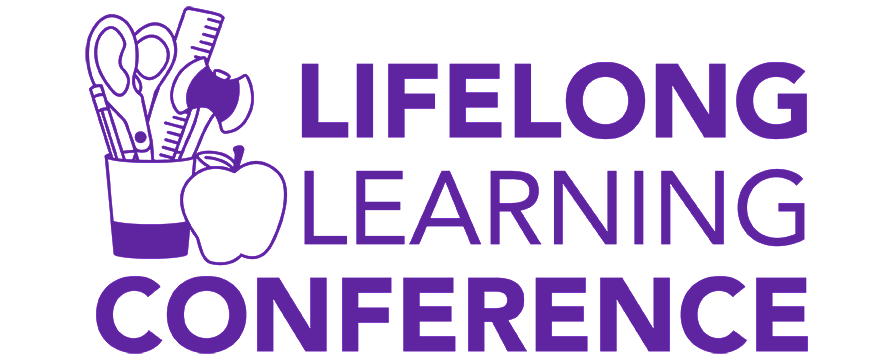Registration for the 2025 Lifelong Learning Conference is open until June 26, 2025.
Notice: Registrations completed after Friday, Jun. 13, 2025 may not receive a t-shirt or parking pass.
Register for the 2025 Lifelong Learning Conference
In an ever-evolving world, the need for continuous learning is more critical than ever. The conference will be a collaborative platform for local educators and SFA alumni to immerse themselves in an engaging learning community that shares innovative teaching practices and emerging research. This conference seeks to inspire and empower educators and communities to embrace lifelong learning as an integral part of their professional journey and thrive in a rapidly changing world.
We encourage submissions from diverse perspectives, including educators, practitioners and leaders. Our aim is to create a dynamic and engaging community that highlights innovative approaches, best practices and research findings in education. Preference will be given to presentations that highlight effective teaching strategies for diverse learners.
Learn what you can expect for the 2025 conference by viewing our 2024 Lifelong Learning Conference page.
2025 Conference Keynote Speaker: Larrian Menifee

Larrian Menifee is a passionate music educator and dedicated coach at Ball High School in Galveston, Texas. With a strong commitment to fostering musical talent and creativity, Larrian has been honored as a two-time semifinalist for the prestigious Grammy Music Educator Award. In addition to teaching music, Larrian coaches both boy's and girl's volleyball, showcasing a diverse range of skills and leadership in the school community.
A proud graduate of SFA, Larrian earned a Bachelor of Music in music education in May 2021. With a deep love for both music and athletics, Larrian continues to inspire students both in and out of the classroom, creating an environment where academic excellence, teamwork and artistic expression thrive.
Workshop
Presenters will conduct a 60-minute interactive session on a specific topic that will lead to participants gaining new skills or knowledge by engaging participants in hands-on activities and collaborative discussions.
Oral Presentation
Presenter will give a 20-minute formal presentation with 10 minutes for questions at the end of the session.
Developing proposals
When developing proposals, consider the following Texas Education Agency continuing professional education topics:
- Collecting and analyzing information that will improve effectiveness in the classroom
- Recognizing early warning indicators that a student may be at risk of dropping out of school
- Educating diverse student populations, including:
- students who are educationally disadvantaged
- students at risk of dropping out of school
- Understanding appropriate relationships, boundaries and communications between educators and students
- Digital learning, digital teaching and integrating technology into classroom instruction
Proposal submission template
- Title of proposal: Enter a clear and concise title for your proposal
- Author(s): Name, affiliation, contact information for all author(s)
- Abstract: A summary of your proposal (50 words)
- Keywords: List three to five key words
- Key takeaways: Applicable information that attendees can use in their practice
- Session type: Select the most appropriate session type for your presentation
- Audio-visual requirements: List any specific audio-visual equipment or materials you will need for your presentation.
Proposals blind peer reviewing criteria
As we aim to ensure the highest quality of presentations and sessions at the Lifelong Learning Conference, we have established the following criteria for the review of proposals. Each proposal will be evaluated based on the following aspects:
- Relevance to the conference theme
- Originality: The proposal presents innovative ideas, methods, approaches or offers creative solutions to current educational challenges.
- Quality of the content: The content is well-researched, relevant and supported by evidence or examples. Priority will be given to proposals aligned to CPEs.
- Practical application: The proposal provides practical and actionable insights.
- Audience engagement: The proposal encourages active participation and interaction among attendees.
- Diversity and inclusivity: The proposal promotes inclusivity and considers diverse perspectives, backgrounds and experiences.
- Clarity: The proposal is well-structured with a clear introduction, content and conclusion.
Each proposal will be reviewed by a panel of experts based on these criteria, and scores will be assigned for each aspect. Submissions that received higher scores in these categories will be given preference for inclusion in the conference program, ensuring that attendees benefit from the most valuable and insightful sessions.
Join us in the quest to unlock the potential of lifelong learning, shaping a brighter and more inclusive future for all. We look forward to your valuable contributions to this important discourse. Together, we can make a difference and prepare ourselves for the challenges and opportunities that the future holds.
Contact
Lifelong Learning Conference
Carrie Wright-Davis, conference co-chair
carrie.wright@sfasu.edu
Heather Olson Beal, conference co-chair
olsonbehk@sfasu.edu

 Axe ’Em, Jacks!
Axe ’Em, Jacks!
